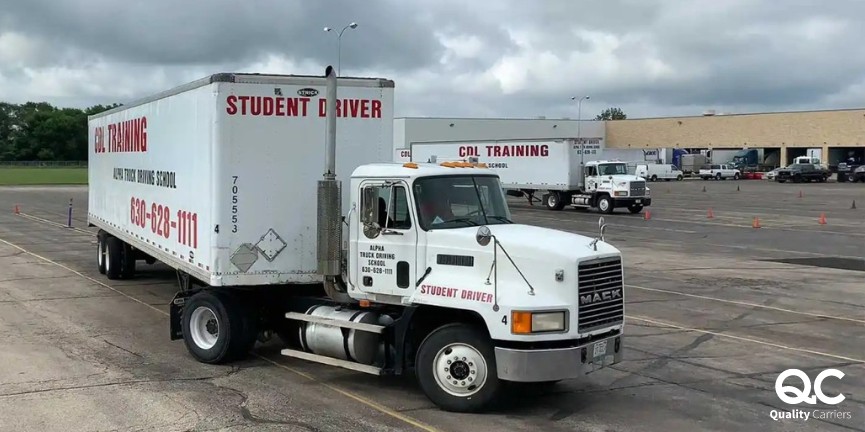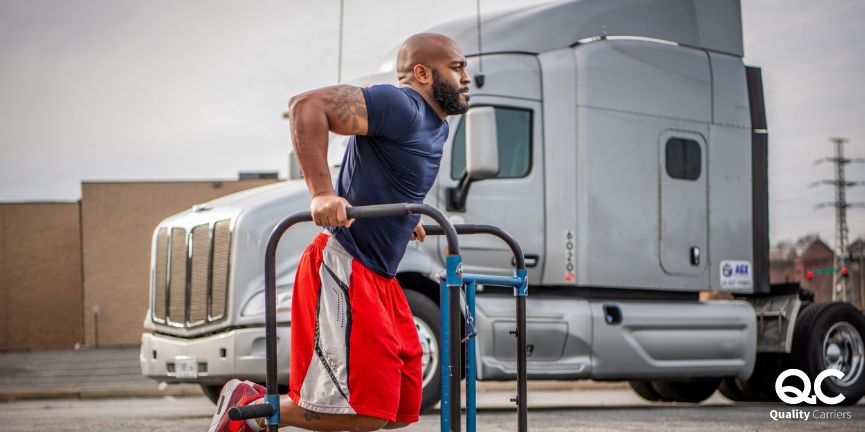You may already know that you need a Commercial Driver’s License (CDL) to become a commercial truck driver, but how long does it take? This question is a vital starting point for many individuals considering a career in trucking. The journey to obtaining a CDL involves more than just a simple test; it requires training, comprehensive education, and hands-on experience behind the wheel.
The truck driving school serves as the gateway to this profession, allowing aspiring truckers to acquire the skills and knowledge necessary to navigate the roads confidently and proficiently. So, let’s hit the road and explore truck driving school, uncovering the answer to the burning question: How long is truck driving school?
What is a Commercial Driver’s License (CDL)?
Before exploring the duration of truck driving school, it’s crucial to understand the cornerstone of this profession: the Commercial Driver’s License (CDL). A CDL Driver’s License is more than just a card; it’s a ticket to a career on the open road. It’s a specialized license required to operate commercial vehicles such as trucks, buses, and trailers. Think of it as the key that unlocks the door to a world of opportunities in the transportation industry.
But what sets a CDL apart from a regular driver’s license? Well, it comes with additional endorsements that indicate the specific types of vehicles a driver is qualified to operate and the kind of cargo they’re permitted to transport. These endorsements include hazardous materials, passenger transport, and double/triple trailers, each requiring skills and knowledge.

CDL Training Programs
Truck driving schools offer comprehensive training programs tailored to different CDL classifications – Class A, Class B, and Class C.
Class A CDL Training
Class A CDL training is the gold standard for truck drivers aiming to operate the heaviest and most complex commercial vehicles. This comprehensive program covers everything from tractor-trailers to combination vehicles, providing students with the knowledge and skills to handle these mammoth machines safely and effectively. Training typically includes classroom instruction, hands-on practice, and behind-the-wheel experience, all geared toward preparing drivers for the challenges of long-haul trucking. From mastering the art of backing up to navigating tight turns, Class A CDL training sets the foundation for a successful career in the trucking industry.
Class B CDL Training
Class B CDL training caters to drivers focusing on operating buses, delivery trucks, and other medium-sized commercial vehicles. While less expansive than Class A training, this program is equally essential for those entering public transportation, package delivery, and vocational driving. Drivers learn the ins and outs of handling these vehicles and honing skills like passenger management, cargo handling, and route planning. Class B CDL training prepares drivers to navigate urban streets, suburban neighborhoods, and everything confidently and competently.
Class C CDL Training
A Class C CDL training is tailored to drivers operating vehicles outside the scope of Class A and Class B licenses. This includes vehicles carrying hazardous materials, transporting a specific number of passengers, or meeting other specialized criteria. The duration and focus of Class C training can vary widely depending on state regulations and particular endorsements required. Whether transporting hazardous chemicals or shuttling passengers to and from their destinations, Class C CDL training ensures drivers are prepared for the unique challenges they may encounter on the road.

Truck Driver Skills
Beyond the technical aspects of operating commercial vehicles, truck driving school instills essential skills crucial for success on the road.
- Patterns: Drivers learn to navigate various road patterns, from highways to urban streets, mastering the art of maneuvering through diverse environments.
- Mind Training: Truck driving demands sharp focus and quick decision-making. Training programs often include mental exercises to enhance cognitive abilities and situational awareness.
- Physical Health: Long hours behind the wheel necessitate optimal physical fitness. Schools may incorporate fitness regimens and wellness education to promote driver health and endurance.
- Dependability: Reliability is paramount in the trucking industry. Students are taught the importance of punctuality, responsibility, and adherence to safety protocols.
The duration of truck driving school varies depending on factors such as the chosen CDL class, individual learning pace, and state regulations. However, irrespective of the duration, the journey through truck driving school equips aspiring truckers with the skills, knowledge, and confidence to navigate the highways with competence and professionalism.
FAQs
How long does truck driving school typically last?
The duration of truck driving school varies depending on several factors, including the type of CDL training program (Class A, Class B, or Class C), the specific curriculum of the school, and individual learning pace. On average, Class A CDL training programs may last between 4 to 8 weeks, while Class B and Class C programs can range from 2 to 6 weeks.
Are there accelerated or fast-track programs available for truck driving schools?
Some truck driving schools offer accelerated or fast-track programs designed to condense the training period and expedite obtaining a CDL. These programs may involve intensive coursework and extended training hours to cover the same material in a shorter time frame.
Can I choose the schedule or timing for my truck driving school classes?
Truck driving schools may offer flexible scheduling options to accommodate students’ preferences and availability. Prospective students can inquire about daytime, evening, or weekend classes and choose the best schedule.
Are there any additional costs or fees associated with truck driving school?
In addition to tuition fees, drivers may incur additional costs for textbooks, equipment, licensing fees, and other miscellaneous expenses. Before enrolling in truck driving school, it’s essential to inquire about all potential costs upfront and explore any available financial assistance options.
Can I retake the CDL exam if I don’t pass it on my first attempt?
Yes, individuals who don’t pass the CDL exam on their first attempt may have the opportunity to retake it after a waiting period specified by the state licensing agency. Truck driving schools often provide remedial training and support to help students prepare for a successful exam retake.









